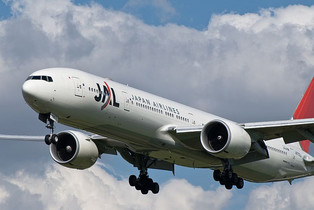
Some wrongs are simple. Sent a mass mailing with an incorrect date? Done that. Formed an opinion about someone based on nothing but a hairstyle? Done it. Bought a $600 brown knit wrap at a craft show, got home and hated it enough never to wear it? Done that. Filed an income tax return from a sick bed, high on decongestants? Yup.
But what about more complicated decisions? When I flew Japan Airlines back home to California in the early ‘70s, I was leaving a privileged but constricted life as the wife of an American businessman with a Japanese client. I was the mother of three boys. The youngest, born in Japan, was nine months and I took him with me. The other two, ten and eight, I left in Japan with their father. I imagined they would follow, and we would be a mother and three children in a one-bedroom rental with the boys sharing a bedroom and the baby in the living room with me.
But in Japan, the boys were enrolled in a private school, with the benefits of a company-provided car, driver, maid and three-bedroom house in Tokyo. Thus, when they came to visit me in the place I could afford, a low-income section of Los Angeles, they clamored to go back and live with their father. I told them, “No, you are going to live with me, but I will let you visit your father before school starts.” They went and they did not come back. I waited for them to start school in September. Their father sent their clothes, but he did not send them. Several years went by before they visited me and their little brother again. And when they came, they made it clear that they would not stay, as their father had been moved to Thailand where their lives continued: interesting and privileged.
When I left my older sons and my marriage, my privileged life in Tokyo with unlimited access to the American Club, what filled me with a conviction of rightness about what I was doing? What did I believe that brought me back to California, to no job, no car, single-parent responsibility for a baby and just $350 in my pocket? I didn’t know if my decision was right or wrong.
Kathyrn Schulz in her book Being Wrong, wrote “Beliefs are models of the world that help us take action; and accordingly, incur consequences.” The beliefs that led me to leave Japan were many: I didn’t belong overseas coasting on top of the culture as the wife of an American businessman. Without a useful role, my life lacked purpose and a sense of belonging. I believed the war in Viet Nam was wrong but because of my husband’s business venture, I could only demonstrate carefully in the streets of Tokyo and dodge riot police. I felt my sanity and my identity were at risk. My belief that the older boys needed me, and I should be their father’s wife carried far less weight.
And so I pretended that this jaunt to Los Angeles was temporary. I said to the boys as we waved goodbye, “See you in a few weeks,” though I would not come back, and of that I was certain.
Schulz says about certainty that “one of the most defining and dangerous characteristics of certainty … is that when we are caught up in our own convictions, other people’s stories –which is to say other people—cease to matter to us.” It’s true, I didn’t think, “My sons have no mother now.” “My husband, what will he be thinking?” In the certainty of my decision, I mattered most.
Was I wrong? Was I right? Should I have stayed? Should I have gone? A lot of time has passed and, at least in this case, I have come to see right and wrong as sides of a mobius strip, twisting wrong and twisting right with risk and outcome always in play.
 RSS Feed
RSS Feed